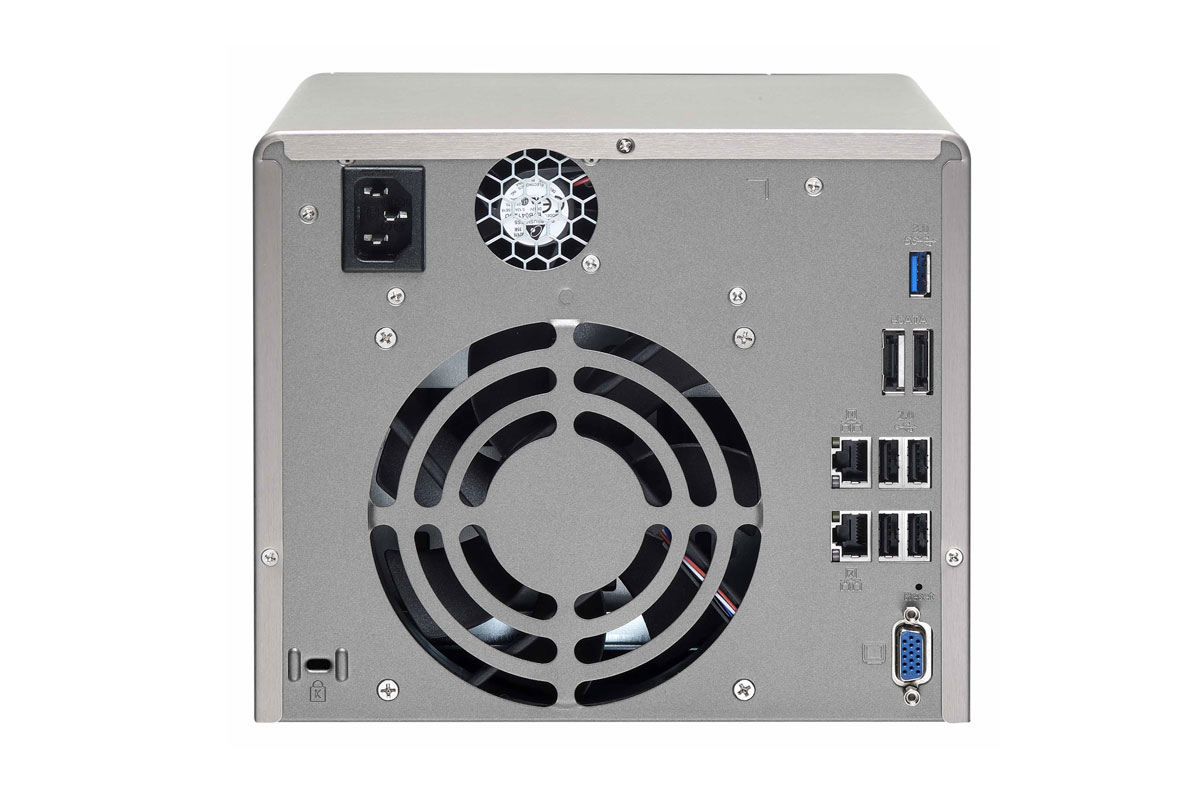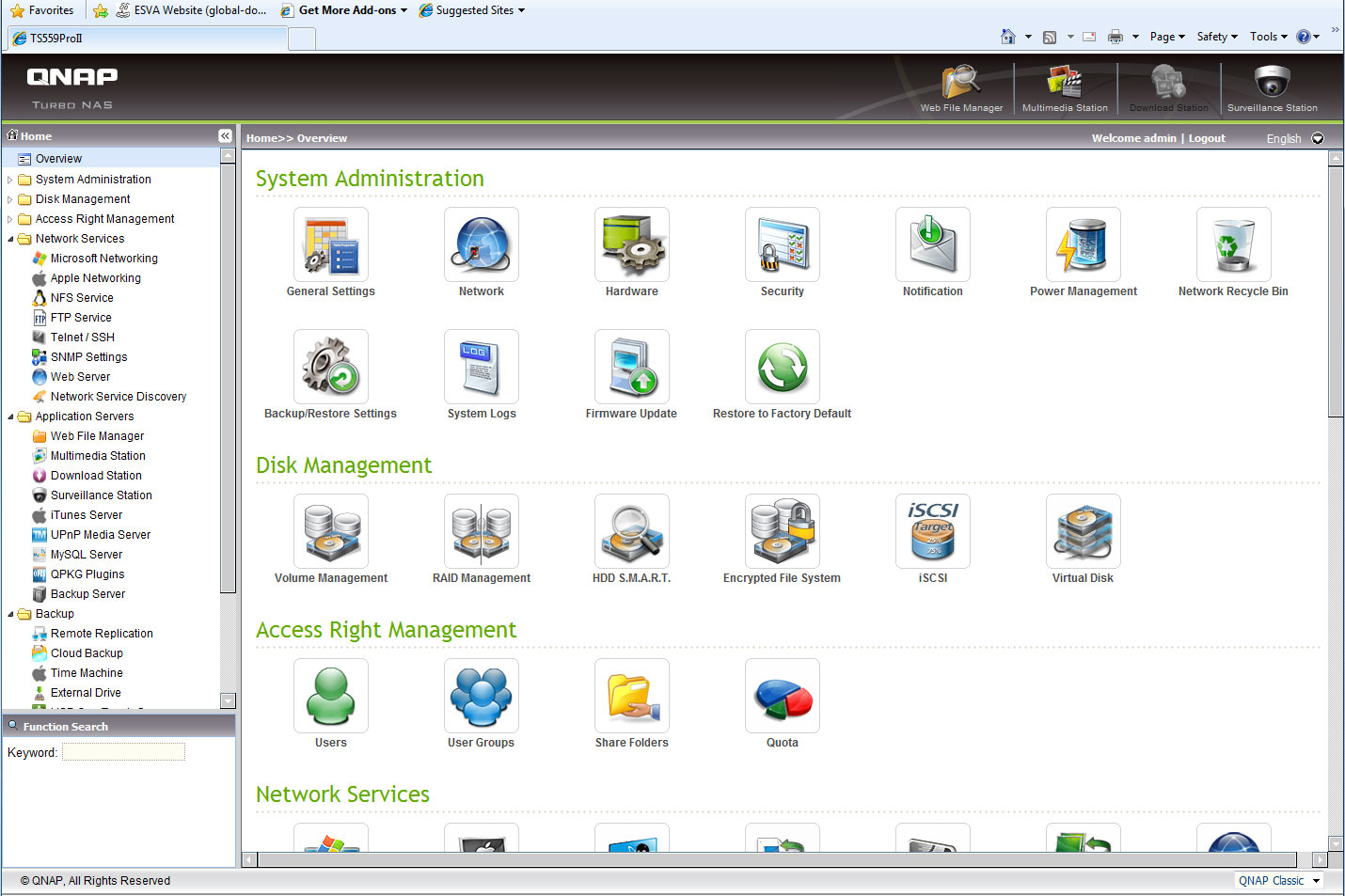QNap TS-559 Pro II TurboNAS review
QNap's next generation of NAS appliances support SATA3 hard disks, have USB3 ports and support some interesting cloud backup services. Dave Mitchell puts the five bay TS-559 Pro II on test and sees whether it's the small business storage host with the most.
QNap's new TS-559 Pro II combines an excellent range of storage features with lightning fast performance. The USB3 ports also perform very well and will make significant improvements if you're backing up to external storage devices. Small businesses especially will appreciate QNap’s free MyCloudNAS service for providing secure remote access to resources.

There's never a dull moment in the desktop NAS appliance market with each vendor constantly trying to outdo the others for features. QNap's latest TS-x59 Pro II range consists of three new desktop models and are the first to support 6Gbit/s SATA hard disks and have USB3 ports.

QNap has also pushed ahead with its support for cloud services as, along with Amazon's S3 hosted backup, you now have support for the ElephantDrive service which Netgear teamed up with some time ago with its ReadyNAS appliances. However, QNap goes a step further with its MyCloudNAS service which allows you to use the appliance to provide your own secure cloud backup, multimedia and file sharing services to remote workers.
The TS-559 Pro II uses the same 1.8GHz dual-core Atom D525 processor as the older Pro+ model but you can now expand memory. The appliance has 1GB which can be upgraded to 3GB using an extra SO-DIMM module. It's easy enough to achieve as you just remove the main cover where you'll find the extra slot easily accessible.
Physically, the TS-559 Pro II is virtually identical to its predecessor as the only external differences are the blue USB3 ports on the front and rear. Along with these you have dual Gigabit Ethernet, four USB2 and a couple of eSATA ports.

QNap's TS-559 Pro II is one of the first NAS devices to have USB3 ports.
Installation is simple as QNap's Finder utility locates the appliance on the network and offers quick access to its well designed web interface. This provides a side menu listing all features and selecting one shows all its details in the main window alongside.

QNap's web interface is well-designed and provides easy access to the myriad features.
Sign up today and you will receive a free copy of our Future Focus 2025 report - the leading guidance on AI, cybersecurity and other IT challenges as per 700+ senior executives
The MyCloudNAS service is hosted by QNap which manages host name registration and dynamic DNS mapping for the appliance's services. A wizard takes you through the process where you provide a unique hostname and enable the services you want to publish.
Dave is an IT consultant and freelance journalist specialising in hands-on reviews of computer networking products covering all market sectors from small businesses to enterprises. Founder of Binary Testing Ltd – the UK’s premier independent network testing laboratory - Dave has over 45 years of experience in the IT industry.
Dave has produced many thousands of in-depth business networking product reviews from his lab which have been reproduced globally. Writing for ITPro and its sister title, PC Pro, he covers all areas of business IT infrastructure, including servers, storage, network security, data protection, cloud, infrastructure and services.
-
 CEOs aren't seeing any AI productivity gains, yet some tech industry leaders are still convinced AI will destroy white collar work within two years
CEOs aren't seeing any AI productivity gains, yet some tech industry leaders are still convinced AI will destroy white collar work within two yearsNews A massive survey by National Bureau of Economic Research shows limited AI impact, but continued hopes it'll boost productivity eventually
By Nicole Kobie Published
-
 Microsoft Copilot bug saw AI snoop on confidential emails — after it was told not to
Microsoft Copilot bug saw AI snoop on confidential emails — after it was told not toNews The Copilot bug meant an AI summarizing tool accessed messages in the Sent and Draft folders, dodging policy rules
By Nicole Kobie Published
-
 Starkiller: Cyber experts issue warning over new phishing kit that proxies real login pages
Starkiller: Cyber experts issue warning over new phishing kit that proxies real login pagesNews The Starkiller package offers monthly framework updates and documentation, meaning no technical ability is needed
By Emma Woollacott Published
